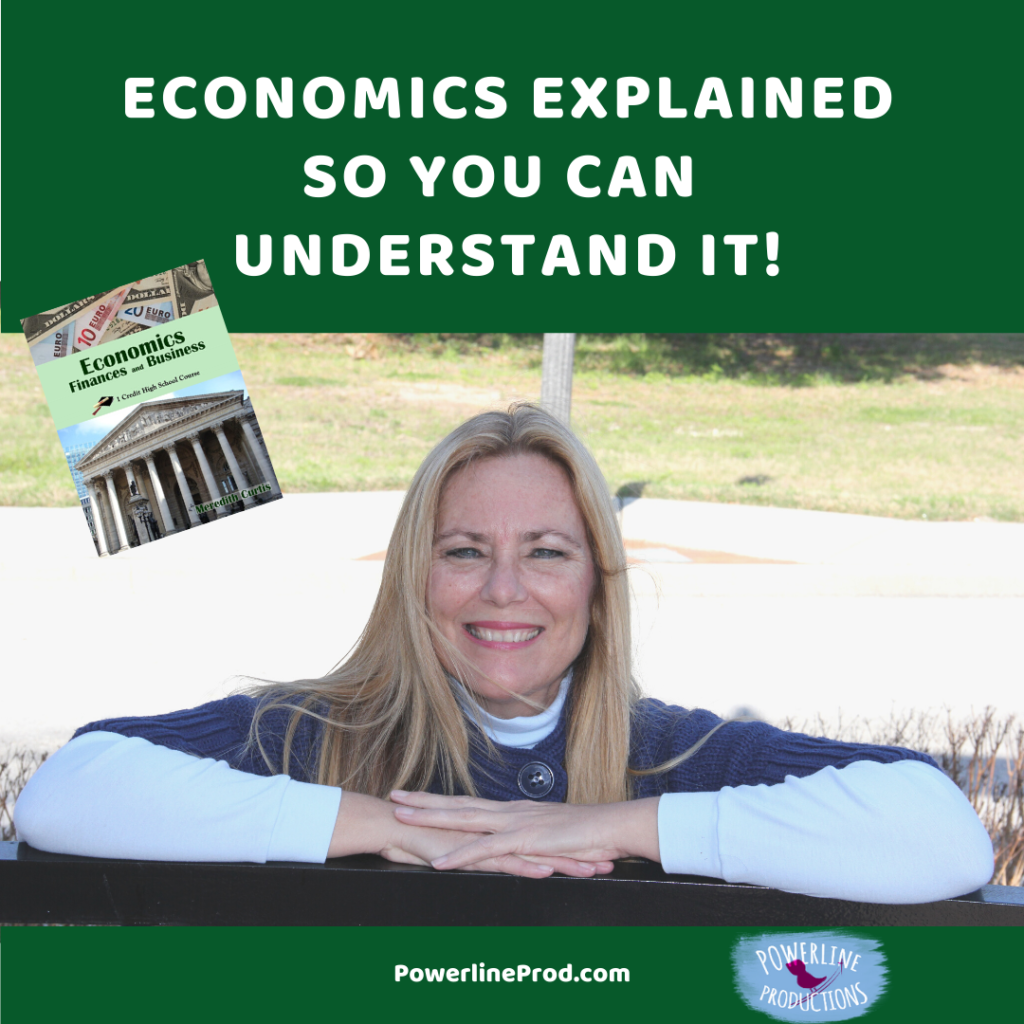Economics impacts us every day, but many of us feel intimidated by economics. I’m here to explain basic economic principles to you in an easy-to-understand way.
Let’s start by talking about Brian.
“Well Brian keeps the economy humming,” I giggled to my husband as we talked late one evening. Our friend, Brian, had dropped in to show us his latest purchases that included a dart gun, a music CD, and a new amp for his guitar.
Where the money came from was a mystery. He worked for Kohl’s, drove a motorcycle, and lived in his own house. His checking account hovered near zero and he didn’t even have a savings account.
We are told by politicians that people spending money is a sign of a “healthy economy.” But is it? What is a healthy economy in God’s eyes? And what is economics anyway?
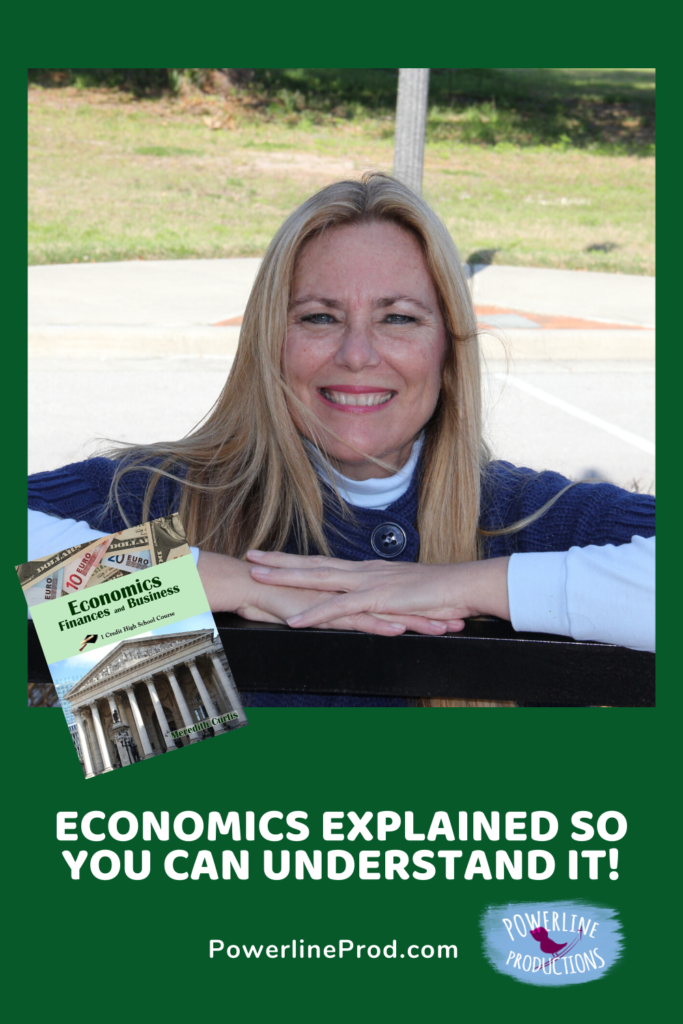
What is Economics?
Economics is the study of the production, distribution, and consumption of goods and services according to Webster’s dictionary.
Goods are products such as televisions, ships, jeans, jewelry, ice cream, or bikes.
Services include hair styling, banking, cleaning, interior decorating, or teaching.
People make, sell, and buy goods and services day in and day out. In the process of all this producing, selling, and buying, money is exchanged.
You see, economics is simple. It is just studying what people make and do and how those things are sold. Daily life is full of buying things. We go to work and produce things (goods) or do things (services) to make money.
Money is constantly flowing from one place to another. Imagine the dollar bill in your purse. Where has it been? Where is it going? Maybe it was a little boy’s allowance and he used it to buy a candy bar at 7-11. The cashier gave it as change to your daughter when she bought a Big Gulp. Your daughter used it to pay your husband back the dollar she owed Daddy, but then he needed larger bills and traded you all the ones and fives in his wallet for a twenty dollar bill.
Studying how, why, and where money goes is another part of economics.
In Heaven, there will be enough of everything, but here on earth there are not enough goods and services to go around. If there were, we would all own beach houses in Hawaii. So, how who will decide who gets what? That is the question that economics tries to answer. As Christians, we want the solution to be righteous, just and compassionate.
Economics is the study of who ends up with what and how it gets there!
Macroeconomics
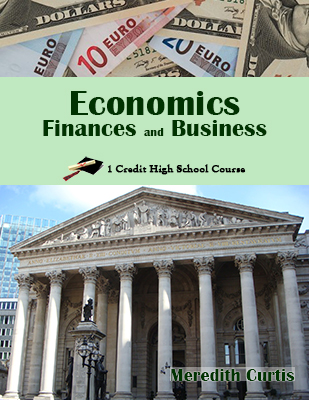
Macroeconomics focuses on the big picture, while
microeconomics focuses on the details of the big picture.
In macroeconomics, we would study economics
systems (socialist, capitalist, mixed), national economies (Swiss, US,
English), sections of the economy (Housing, Wall Street, Farming), and how
economics spheres interact (big layoff by an automotive company on the stock
market). Don’t let these big words throw you because the concepts are simple.
Macroeconomics looks at the economy as a whole
and the factors that cause or inhibit growth. In other words, what is
happening in the world that makes people buy more stuff?
Macroeconomics studies how groups and nations manage the flow and distribution of wealth.
Wealth includes money, land, “stuff” (possessions), houses, skills, education, and products.
Does the government determine who gets what (command economy like socialism or fascism)? Do people make their own decisions and manage their own businesses (free market economy like capitalism)? Supply and Demand are studied too, but as part of the overall picture.
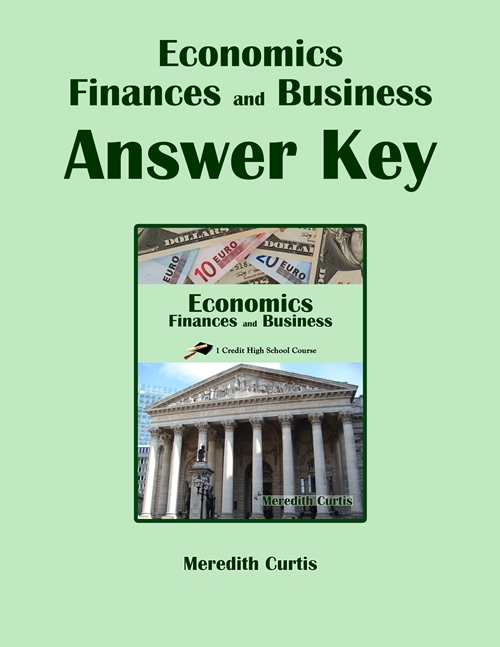
Microeconomics
In microeconomics, the focus is more on the laws of supply and demand.
Supply is how much of something there is. If a shoe company in Michigan has 5,000 pairs of shoes for sale, those 5,000 shoes are his supply.
Demand is if people want something, how much they want it, and how much they are willing to pay for it. If there are only ten people in Michigan who want the shoe company’s shoes, there is not a big demand.
Microeconomics studies consumer behavior and how individual businesses make decisions about production and cost. Why do people buy what they buy? What makes people want to buy something? What determines how much people are willing to spend on something they want? How much does a business need to charge to cover expenses and make a profit?
Microeconomics helps businesses and individual people manage their wealth, making wise decisions. When we talk about business budgets or personal budgets, we are talking microeconomics.
GNP/GDP
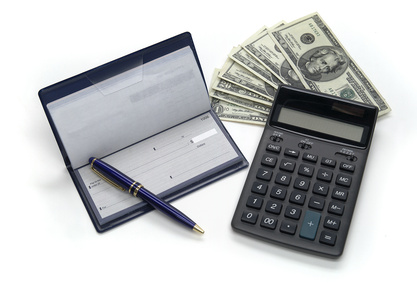
Economics looks at how people get what they want, who gives it to them, how they get it, and how much they get. Have you heard people mention the GNP (Gross National Product) or the GDP (Gross Domestic Product)? This is simply the total amount of all the good and services that are sold. The GNP or GDP includes every ice cream cone, hot dog, cell phone, hair cut, car, house, book, pedicure, or car wash.
When people (consumers) start buying more and more, the economy is growing, or expanding. Conversely, when people (consumers) buy less and less, the economy is in a recession, or depression.
The problem with defining a growing economy by increased spending is that when consumers stop spending and save (a good thing to do according to Scripture!), then the economy is “needing to be fixed.”
The economy goes in cycles of growing and recessing. This cycle, if not tampered with, is natural and normal. People go through seasons of spending and saving. A healthy economy has seasons of expanding and decreasing flowing gently from one to another. We will talk more about this cycle next time.
Until then, don’t let the term economics scare you anymore!
Teaching Economics in High School
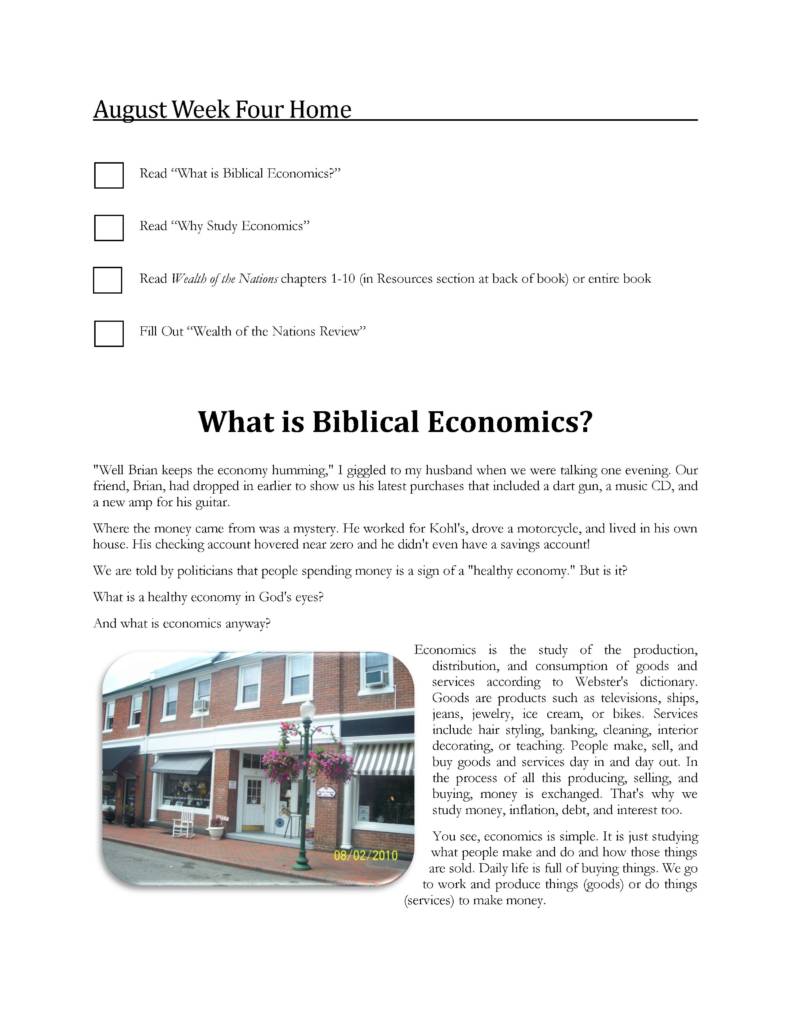
When it came time to teach economics in high school for the first time, I said good-bye to dry, confusing economics textbooks and created my own fun, interactive economics course! My teens learned biblical economic principles that they can take into adulthood. Economics is not as hard as you think, especially if you are learning all about money and business in an interesting and practical way. Economics, Finances, & Business, a one-credit Economics course, is the course I created for my own teens and you can use it, too. Economics, Finances, & Business can be used at home or with a homeschool co-op.
Aside from the information/wisdom-packed textbook Economics, Finances, & Business, your teen will read many living books on Economics, Financial Management, and Business like Wealth of the Nations and Whatever Happened to Penny Candy.
- Learn to manage personal, household, and business finances
- Find, furnish, and budget for first apartment
- Make a plan to buy a car
- Invest in stock market with stock market game
- Use consumer wisdom
- Plan for college
- Choose a career
- Create logos and slogans
- Make a business plan
- Experience running a home business
- Write essays
- Give an economics speech
- Watch The Ultimate Gift
Economics, Finances, & Business is a 1-credit high school economics course. Read living books, conversational text, complete practical assignments, write essays, budget, “buy a car,” “find your first apartment,” and discover what the Bible has to say about it all! Purchase Economics Finances, & Business in print at Amazon and e-book at PowerlineProd, TeachersPayTeachers, or PayHip. Teens love this course! Learn more: https://www.powerlineprod.com/shop/economics/
Did you know Economics, Finances, & Business has an Answer Key? It’s true! Purchase Economics Finances, & Business Answer Key in print at Amazon and e-book at PowerlineProd, TeachersPayTeachers, or PayHip. Learn more: https://www.powerlineprod.com/shop/economics-finances-business-answer-key/
Until next time, Happy Homeschooling!
Warmly,
Meredith Curtis
